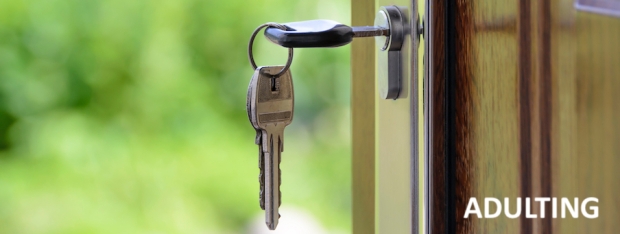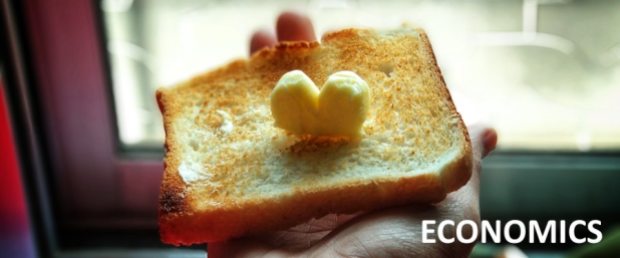
What motivates you at your job? What gets you out of bed every weekday and makes you pounce on the challenges in the workplace, gets you to talk to people who may be unpleasant and gives you strength to overcome late nights? What are you working for?
I’m thinking of asking these questions to my bosses the next time I meet them 1–1; or at least just to pick their brains on this question because it is not so often that as staff, we get to that level of what really makes the boss tick. It is mostly inferred through actions, but getting an explicit answer may help to get them thinking. The reason is that for most of the millennials today, we are sometimes disgruntled by perhaps our bosses’ expectations that we’ll be naturally motivated to do the work that we are supposed to do.
To be fair, I started writing this article a bit longer ago than when Delane Lim put up his Facebook post. Beyond the foreign-local debate, I think there’s something about the narrative for young Singaporeans that have changed quite a bit. And this is important in determining motivation; I’d also criticise how much that expectation of motivation from younger generations of Singaporeans is really self-defeating. I will probably write a little bit more on the narrative that younger generations of Singaporeans live through in the future but this will likely be my seminal piece about it.
Having gone from Third World to First within two generations, we have had for a really long time, this great sense of optimism about the future and being able to obtain the fruits of our labour. Frankly, our forefathers who were in their twenties and thirties during the time when our nation got its independence, life wasn’t expected to transform radically, nor necessarily better. They didn’t live in a wretched existence, and, of course, there was some degree of inequality; but the society was not only much more equal, other kinds of differences (speaking different languages, or dialects, being in different clans, or being of different races) were more stark than differences between classes. Because people tasted some fruits of their labour, even if it was just a bit of it, in the form of more materials, more comfortable living, more convenient lives, there was clear motivation in trying to achieve the lifestyle deltas.
Consumer credit was scarce, which meant that the only way to access the lifestyle deltas was to work hard, and hence there’s that ‘hunger’ to move forward, and to forge ahead. Collectively as a society, the government, our institution had a good sense of the investments needed: in terms of education, in terms of infrastructure. The wage improvements were substantial when you move from A Level to a Diploma, not to mention a Degree — in the days when only less than 5% of the working population actually had degrees. The narrative was that working hard, being hungry pays off for real. The improvements in terms of social systems that provided housing, retirement savings, education for one’s children and so on, provides the predictability that takes off some of the salarymen’s stress and allow them to concentrate on climbing that corporate ladder, bring the dough home and please their families.
That narrative maintained its clout for two generations, and it was natural because the kind of improvements was somewhat similar and consistent. Of course, the second generation inherited some kind of social hierarchy from the first generation but then in an industrialising economy, low-skills are still important and the wage gap wasn’t as significant at a time when the labour force of populous economies of India and China was released to compete in the global economy. Then when the third generation came in, there was increasing pressure from global competition but Singapore occupied a good position in the skills ladder of the world at that time and would also have one of the best-educated workforce, as had been planned by the government right from the start. But optimism may have shrunk as we knew that we inevitably have to move towards a genuine knowledge-based economy. Yet our management philosophy and social structures were still largely industrial; it was critical that this generation started changing their thinking about motivations of workers and the future of work, but they didn’t because they might have felt like they held up their side of the bargain with the preceding generation so things should not be any different with the succeeding ones. In any case, they continue to enjoy rises in living standards, buoyed by wider availability of credit and various schemes to keep pockets of cost of living under control.
Alas, the narrative for millennials took a sharp change as the lifestyle deltas were no longer that apparent through ‘hunger’. One thing for sure is that consumer credit means now you’re not working for something you don’t yet have so that you’ll find yourself with the day when you enjoy the sweet fruits of your labour. You are probably working for something whose sweetness has long worn off while the bitterness of its instalments or interest payments still kept you working. It makes for a completely different dynamic and narrative about life.
Just think about the motivation of a 30-year-old man in the 1970s who just got his first public rental flat with a young family. He knows he has to keep up the rental payments so there’s shelter for his family and he works hard, also trying to set aside funds for the future education of the child, and even maybe eventually to buy over the rental flat from the government one day. The ratio of House prices to the Annual Median Gross Household Income was definitely much lower than as well.
Today, if you turned 30 and just bought a resale flat in a more upscale area to move in with your spouse; chances are that you were able to avoid only on the basis of double income, and you’re paying your mortgage through CPF, which you don’t see much of but you realised you’ll need to hold on to your job to keep the payments going. You might not have kids yet and you could quite easily afford good food and other luxuries through our globalised economy and e-commerce. You are already living the life! What kind of lifestyle delta are you expecting by working hard at your job? In fact, the additional hours you put in is decreasing the quality of your life, you’d reason. And you like job stability, because life is good now — it is acceptable to say the least, with little prospect of improvement. After all, what are you trying to afford with more money?
And so yes, what the boomers expect as motivation from the millennials? It will have to go beyond the material; the sense of purpose cannot be assumed — it can only be imbued.
This is part of a series of republished articles from my Medium page because I am worried about the platform ceasing to be.









